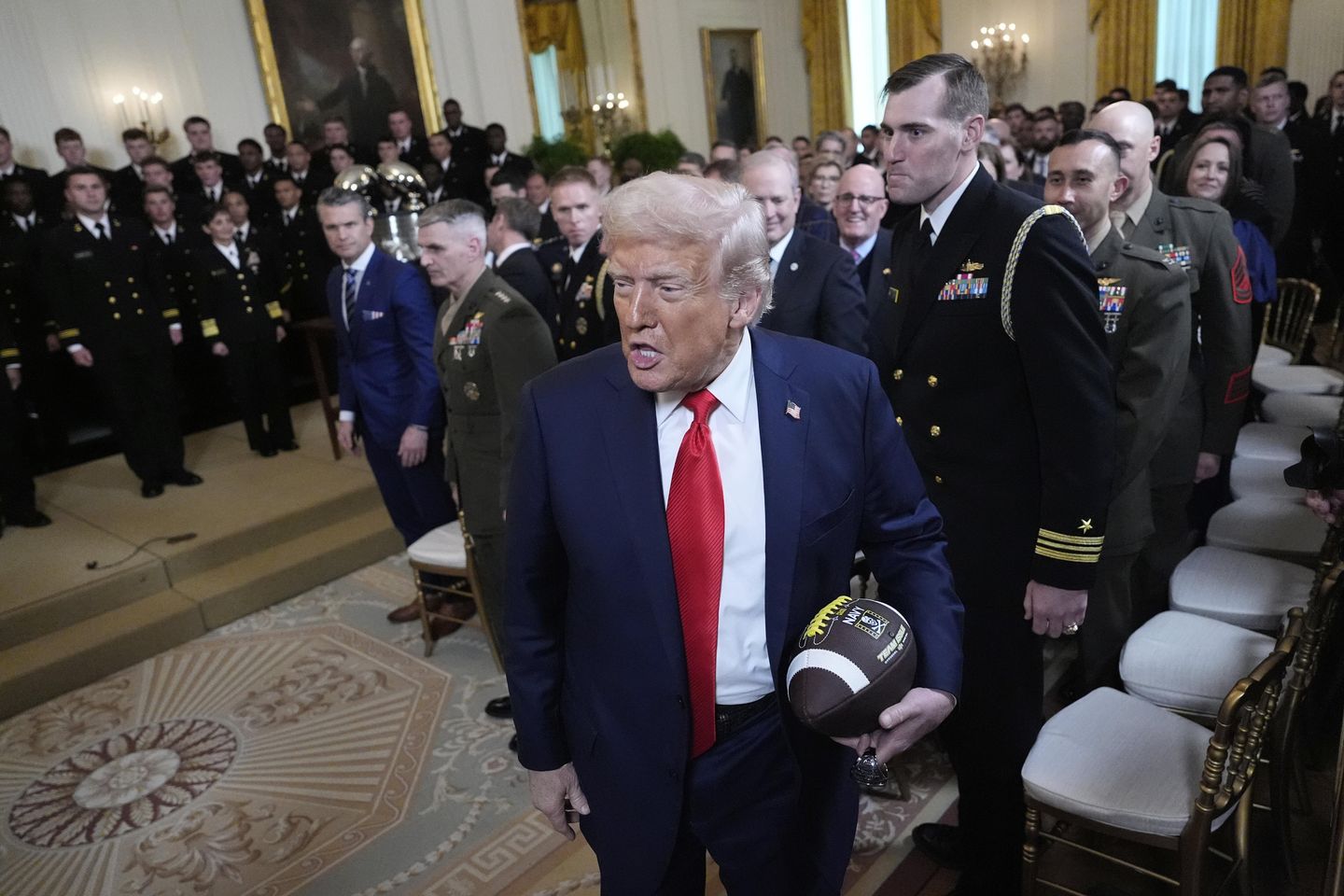
President Trump on Tuesday signed a slew of executive orders overhauling how and where the federal government spends taxpayer money, directing agencies to move to rural areas and purchase more off-the-shelf items.
The orders are part of Mr. Trump’s push to slash government spending by changing how it does business. Those efforts include cutting federal contracts, slashing workforces and shuttering programs. However, the administration has faced several legal challenges over the cuts.
One of the orders paves the way for federal agencies to relocate to rural areas across the country.
The order revokes previous directives by Presidents Clinton and Carter that required federal agencies to prioritize urban central business districts when seeking office space.
“Revoking these orders will restore common sense to federal office space management by freeing agencies to select cost-effective facilities and focus on successfully carrying out their missions for American taxpayers,” the order said.
Under Mr. Carter’s order in 1978, the federal government was required to first explore central business districts when looking for office space. A follow-up order by Mr. Clinton in 1996 encouraged agencies to locate their facilities in historic properties and districts.
“The American people are spread across more than 3.8 million square miles in urban, suburban and rural areas,” the Trump order reads. “To provide the highest quality services in an efficient and cost-effective manner, executive departments and agencies must be where the people are.”
The administration has tried to cancel federal leases and even has considered selling hundreds of federal buildings, including agency headquarters. The General Services Administration pushed back on that proposal but is looking to reduce more than $17 billion in maintenance costs in older buildings.
The other two directives signed by Mr. Trump change the federal procurement process by requiring agencies to purchase commercially available products and stripping out regulations that make it difficult for the government to do business with the private sector.
“Previous administrations evaded statutory preferences and abused the federal contracting framework by procuring custom products and services where a suitable or superior commercial solution would have fulfilled the government’s needs,” the order read. “Doing so simultaneously stifled the integration of commercially available innovations in government procurement while increasing government spending, resulting in avoidable waste and costly delays to the detriment of American taxpayers.”




![Jasmine Crockett Justifies Mass Illegal Immigration With Bizarre Argument [WATCH]](https://www.right2024.com/wp-content/uploads/2025/03/1742007023_Jasmine-Crockett-Justifies-Mass-Illegal-Immigration-With-Bizarre-Argument-WATCH-350x250.jpg)
![Red Sox Fan Makes the ‘Catch of the Day’ with Unconventional ‘Glove’ [WATCH]](https://www.right2024.com/wp-content/uploads/2025/04/Red-Sox-Fan-Makes-the-‘Catch-of-the-Day-with-350x250.jpg)

![NYC Tourist Helicopter Falls into Hudson River, Siemens Executive and Family Among Those Killed [WATCH]](https://www.right2024.com/wp-content/uploads/2025/04/NYC-Tourist-Helicopter-Falls-into-Hudson-River-Siemens-Executive-and-350x250.jpg)








